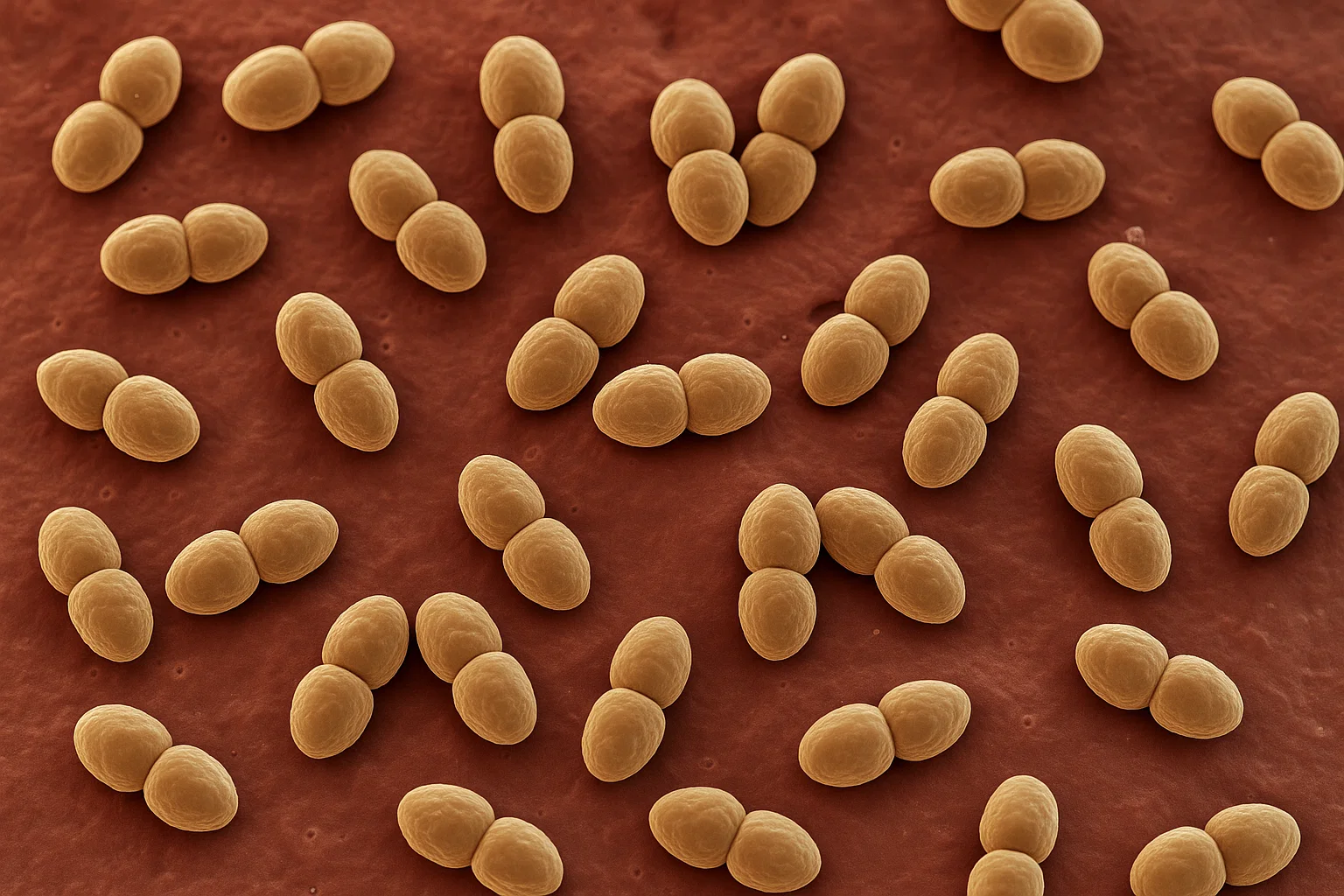Streptococcus pneumoniae is a bacterium that can cause a range of mild to severe infections. It is responsible for diseases such as pneumonia, meningitis, ear infections, and bloodstream infections. The symptoms vary depending on the site of infection, but they often include fever, cough, chest pain, headaches, and confusion.
Diseases Caused by Streptococcus pneumoniae
This bacterium is a leading cause of several serious conditions:
- Pneumonia – infection of the lungs, often with cough, chest pain, and breathing difficulties.
- Meningitis – infection of the membranes surrounding the brain and spinal cord, leading to headache, stiff neck, and sensitivity to light.
- Bacteremia – bloodstream infection that can cause sepsis, chills, and low blood pressure.
- Otitis media – middle ear infection, especially common in children.
- Sinusitis – inflammation of the sinuses with facial pain and nasal congestion.
Symptoms of Streptococcus pneumoniae Infections
The exact symptoms depend on the disease, but common signs include:
- Fever and chills.
- Chest pain and persistent cough.
- Shortness of breath or difficulty breathing.
- Headache, confusion, or stiff neck.
- Ear pain, fluid drainage, or hearing problems in children.
Example Table: Diseases vs. Symptoms
| Disease | Main Symptoms |
|---|---|
| Pneumonia | Cough, chest pain, shortness of breath, fever |
| Meningitis | Headache, stiff neck, nausea, confusion |
| Bacteremia | Chills, fever, low blood pressure, sepsis |
| Otitis media | Ear pain, irritability, hearing loss |
| Sinusitis | Nasal congestion, facial pain, headache |
Risk Factors
Some people are at higher risk of severe infections:
- Young children and older adults.
- People with weakened immune systems.
- Patients with chronic illnesses (heart disease, diabetes, lung conditions).
- Smokers and those with damaged airways.
Prevention
- Vaccination (pneumococcal vaccines).
- Good hygiene practices such as regular handwashing.
- Avoiding smoking, which damages lung defenses.
- Prompt medical care for respiratory illnesses.
FAQ About Streptococcus pneumoniae
1. Is Streptococcus pneumoniae contagious?
Yes, it spreads through respiratory droplets when an infected person coughs or sneezes.
2. Can antibiotics cure pneumococcal infections?
Yes, but antibiotic resistance is an increasing concern, so early treatment is essential.
3. How effective are pneumococcal vaccines?
They provide strong protection, especially against severe diseases like meningitis and bacteremia.
4. Who should get vaccinated?
Infants, older adults, and people with chronic conditions or weakened immunity.
5. Can a healthy adult get seriously ill from S. pneumoniae?
Yes, although severe disease is more common in high-risk groups, even healthy individuals can be affected.
This article is not medical advice and reflects only the author’s views. If you have any health concerns, please consult a qualified doctor.















